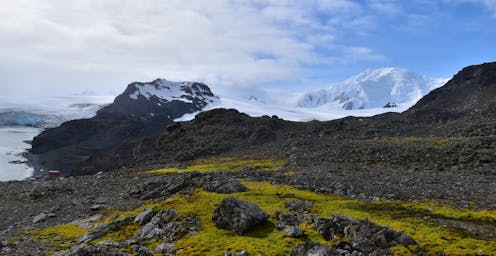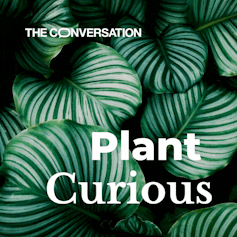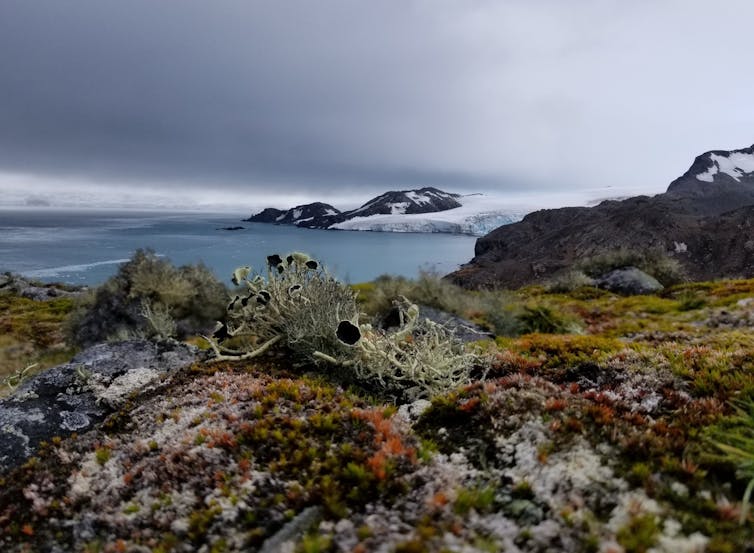
A tiny seed is stuck between loose gravel and coarse sand. There is nothing else alive around it. All it can see is a wall of ice reaching 20 metres up into the sky. It is cold. Survival is hard around here. In winter, it is dark even during the day. In summer, the sun bakes the ground hard and dry for 24 hours.
The seed was left here by tourists several years ago, who came to see the wonders of the last remaining wilderness on planet Earth: Antarctica.
Life is changing. Warmer temperatures are melting the glaciers and the meltwater allows the seed to start growing. Antarctica is in the grip of some of the world’s fastest climate change. Its melting ice could contribute up to 5 meters of sea-level rise. Where the ice disappears, it leaves barren ground behind. By the end of this century, a small country’s-worth of land could appear from below the ice.

Many people think of plants as nice-looking greens. Essential for clean air, yes, but simple organisms. A step change in research is shaking up the way scientists think about plants: they are far more complex and more like us than you might imagine. This blossoming field of science is too delightful to do it justice in one or two stories.
This article is part of a series, Plant Curious, exploring scientific studies that challenge the way you view plantlife.
New land in Antarctica is colonised by pioneer organisms. The first to appear are algae and cyanobacteria – minuscule organisms tiny enough to fit between sand grains. Here, sheltered from the burning sun rays, the algae live and die and as they normally do, slowly stick the sand particles together to create a surface for other organisms to grow on.
Lichens and mosses follow. They are just a few centimetres tall but compared to other life on Antarctica’s shores they look like giants. Once lichens and mosses have made themselves a home, even larger organisms may show up and eventually the plants take hold. Their seeds, if stuck in a soft and moist mossy cushion, proliferate and grow.
Only two plant species are native to Antarctica. Both spread their seeds by wind. This makes them independent from animals and insects, which aren’t needed to carry the pollen or seed to another flower or fresh patch of soil. The wind just blows them there. All these plants need is that bit of moss or lichen to hold on to, so they are not blown away into the cold desert of snow and ice.

But this natural sequence of plant establishment has been broken, as the climate changes and conditions become more habitable. More than 100 plant species have invaded Antarctica already. The newcomers are doing well. For instance the fast-growing opportunist Poa annua, the common lawn grass, has rapidly spread across the sub-Antarctic Islands from South Georgia to Livingston Island and is now making its way south to the Antarctic Peninsula.
Researchers are wondering how much potential there is for new plant species to thrive in Antarctic soils. What will Antarctica look like in 100 years time? Could it be green like the tundra landscapes we know from the Arctic?
A new map
I’m part of a group of scientists who have just combined satellite data with field measurements to produce the first map of green vegetation across the whole Antarctic continent.
We detected 44.2 km² of vegetation in total, mostly found in the Antarctic Peninsula and neighbouring offshore islands. This vegetation area makes up just 0.12% of Antarctica’s total ice-free area, highlighting that Antarctica remains the frozen continent dominated by snow and ice. For now.
An unspoiled Antarctic environment is worth protecting for its own good, but it also serves humanity. Climate and weather patterns across the world are driven by the immense large ice masses on the Antarctic continent. Their disappearance would change our planet as we know it.
My colleague Charlotte Walshaw from the University of Edinburgh was the lead scientist of the recent research mapping vegetation in Antarctica. She points out that these new maps provide key information on a scale which couldn’t be achieved in the past. “We can use these maps”, she told me, “to keep a very close eye on any large-scale change in vegetation distribution patterns.”
Vegetation in Antarctica encounters the harshest living conditions on the planet. Only the most resilient organisms can thrive there, and we don’t know yet what their future holds with climate change. Now that we know where to look for these plants, we can provide more accurate conservation measures to safeguard their future.

Don’t have time to read about climate change as much as you’d like?
Get our award-winning weekly roundup in your inbox instead. Every Wednesday, The Conversation’s environment editor writes Imagine, a short email that goes a little deeper into just one climate issue. Join the 35,000+ readers who’ve subscribed so far.
Claudia Colesie receives funding from the Natural Environment Research Council (NERC, grant NE/V000764/1) and the Department for Environment, Food & Rural Affairs (DEFRA, grant Darwin Plus DPLUS186, Evidence-based conservation of biodiversity in the South Sandwich Islands).
This article was originally published on The Conversation. Read the original article.







